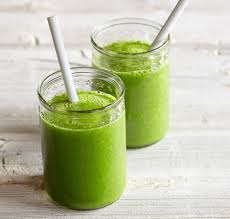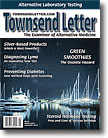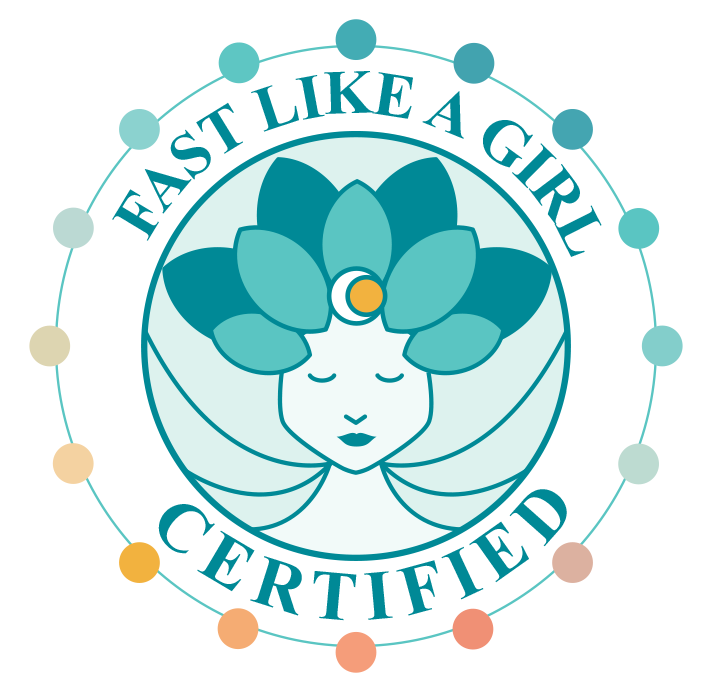Before you drink Green Smoothies
 If you have made a commitment to getting healthier this year, you may have considered, or already started drinking green smoothies.
If you have made a commitment to getting healthier this year, you may have considered, or already started drinking green smoothies.
The idea behind green smoothies is that in order to eat large amounts of leafy green vegetables (which everyone knows you need lots of), you can blend them into a juice and drink them down. In addition, some green smoothie recipes include nuts and fruits to round them out.
Sabotaging your health?
 Could you actually be sabotaging your health? How could that be? Prevalent in popular media, especially the internet, is the health tip to clean up your diet by drinking green smoothies.
Could you actually be sabotaging your health? How could that be? Prevalent in popular media, especially the internet, is the health tip to clean up your diet by drinking green smoothies.
I was alerted to the possible dangers by William Shaw, PhD, when he reported in the January 2015 Townsend Letter about patients with high oxalate levels, including those drinking daily green smoothies.
Read on before rejecting this possibility or getting alarmed. Let’s put this all in context.
What are oxalates?
 You may have heard of oxalates in relation to kidney stones or spinach.
You may have heard of oxalates in relation to kidney stones or spinach.
Oxalate and oxalic acid naturally occur in plants and animals, including us. Oxalic acid is the most acidic organic acid in our body fluids.
It comes from what we eat, as a by-product of metabolic processes, and from fungal infections such as Aspergillus and possibly Candida.
Does everybody react the same to oxalates?
Two types of genetic diseases produce high levels of oxalates in the urine. These can be tested for.
High oxalate levels in urine and blood were first found in people who were susceptible to kidney stones. Most kidney stones are composed of calcium oxalate.
For most of the rest of us, we can deal with oxalates as long as our mineral intake is sufficient and not overloading on foods high in oxalates.
What happens when oxalates are high in the body?
People who are susceptible to kidney stones have high oxalate levels in their urine and blood. When calcium and magnesium are low in the diet, oxalic acid from food is easily absorbed from the intestines and moves into the bloodstream. Blood filtered by the kidney containing this high oxalate content combines with calcium or heavy metals such as lead and mercury to form crystals. These crystals are known as kidney stones, and can block urine trying to leave the system, damage the kidney, and cause severe pain.
These oxalate crystals can also form in bones, skin, joints, eyes, the thyroid gland, blood vessels, lungs, and the brain! This may cause symptoms of:
- anemia
- immune suppression
- fibromyalgia
- vulvodynia
- stroke
- atherosclerosis
Oxalates in the urine are much higher in children with autism than in normal children.
Oxalate crystals may damage tissues because of their structure with sharp points and edges. This can then cause inflammation.
How can I avoid excess oxalates?
- Moderate sources of excess oxalates
- treat fungal infections
- eat foods with lower oxalate content
- Reduce absorption from the intestines by ensuring adequate calcium and magnesium levels in the diet or by supplementation. Taking a cal/mag supplement may be necessary with a gluten-free casein-free diet.
- Help flush oxalates from the body by drinking adequate water.
- Help the body to break down oxalates by ensuring adequate B6 intake or supplementation.
- If necessary, prevent calcium oxalate crystal formation by taking chondroitin sulfate.
Which foods are high in oxalates?
The top high oxalate food are:
- spinach & leafy vegetables
- beets
- rhubarb
- peanuts
- strawberries & other berries
- wheat bran
- soy
- chocolate
- cashews & pecans & almonds
Significant concentrations of oxalates are not found in meat or fish.
Scientists have developed sensitive techniques to accurately measure oxalate in foods. The size of servings normally eaten should be taken into consideration.
Oxalate-Rich Food Items
| FOOD ITEM SERVING (oz) | CONTENT (mg) |
| Beet greens, cooked 1/2 cup | 916 |
| Purslane, leaves, cooked 1/2 cup | 910 |
| Rhubarb, stewed, no sugar 1/2 cup | 860 |
| Spinach, cooked 1/2 cup | 750 |
| Beets, cooked 1/2 cup | 675 |
| Chard, Swiss, leaves cooked 1/2 cup | 660 |
| Rhubarb, canned 1/2 cup | 600 |
| Spinach, frozen 1/2 cup | 600 |
| Beets, pickled 1/2 cup | 500 |
| Poke greens, cooked 1/2 cup | 476 |
| Endive, raw 20 long leaves | 273 |
| Cocoa, dry 1/3 cup | 254 |
| Dandelion greens, cooked 1/2 cup | 246 |
| Okra, cooked 8-9 pods | 146 |
| Potatoes, sweet, cooked 1/2 cup | 141 |
| Kale, cooked 1/2 cup | 125 |
| Peanuts, raw 1/3 cup (1-3/4 oz.) | 113 |
| Turnip greens, cooked 1/2 cup | 110 |
| Chocolate, unsweetened 1 ounce | 91 |
| Parsnips, diced, cooked 1/2 cup | 81 |
| Collard greens, cooked 1/2 cup | 74 |
| Pecans, halves, raw 1/3 cup (1-1/4 oz) | 74 |
| Tea, leaves (4 mm. infusion) 1 level tsp in 7 oz water | 72 |
| Wheat germ, toasted 1/4 cup | 67 |
| Potato, Idaho white, baked 1 medium | 64 |
| Carrots, cooked 1/2 cup | 45 |
More information on the Oxalate Content of Food is available in this pdf by Helen O’Connor, MS, RD.
How much oxalates are safe to eat?
Daily intake can be 80 – 120 mg a day in adults, an may be as high as 1,000 mg a day in the typical Western diet.
William Shaw estimates that a person drinking a green smoothie is taking in 15,000 mg a day, about 15 times the average daily oxalate intake.
If you have any of the symptoms mentioned above, it would be prudent to decide what level is safe for you.
Is there a way to test for oxalates?
Toxic levels of oxalates are important to test to discover genetic variations, effects of fungal infections and nutritional overload.
The Great Plains Laboratory, Inc. offers The Organic Acid Test (OAT) to measure urinary oxalates levels.
In addition, it includes 74 unique metabolic markers for fatty acid metabolism, yeast and clostridia overgrowth, antioxidant deficiencies, nutritional deficiencies, neurotransmitter levels, and Krebs cycle abnormalities, which are all important to the doctor to determine the cause of high oxalates.
Dr. Kasdorf can help you with this testing if you wish to investigate.
WANT TO USE THIS ARTICLE IN YOUR NEWSLETTER OR WEB SITE? You can, as long as you include this complete blurb with it: “Naturopathic Physician Dr. Cheryl Kasdorf is a doctor who listens and has answers with a natural approach that works. She is known as the go-to person to get back your get-up-and-go when it is gone, gone, gone. Get your FREE gift “Dr. Kasdorf’s Health Secrets for Feeling & Looking Great” at drcherylkasdorf.com




